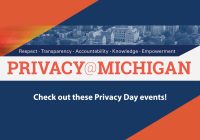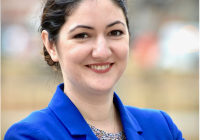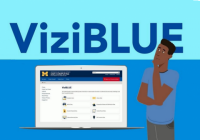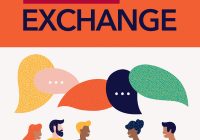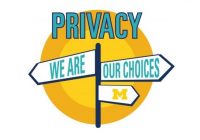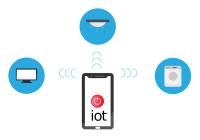Tag Archives: privacy
Privacy events focus on child safety in a smart home and ethics in tech
Data Privacy Day (Data Protection Day in the EU) is on January 28! To celebrate at U-M, ITS Information Assurance (IA) is hosting privacy events throughout February. These sessions are intended to raise awareness, promote best practices, and provoke thought and conversation on privacy topics broadly relevant to our community members and society at large. Refer to the… Read More »
Privacy Day keynote — Beyond privacy with Gabriela Zanfir-Fortuna
U-M celebrated Privacy Day for the fifth year through a month’s worth of programming co-convened by ITS Information Assurance and the School of Information. At U-M’s 2022 Privacy Day keynote presentation, Dr. Gabriela Zanfir-Fortuna, vice President for Global Privacy at the Future of Privacy Forum, walked her audience through the key concepts of privacy and data protection and… Read More »
Three Student Privacy Conversation Starters: ITS staff present at ASU Digital Trust Summit
At the June 2021 Arizona State University (ASU) Digital Trust Summit, Svetla Sytch, ITS assistant director of privacy and IT policy, and Julia Silverman, an ITS intern fellow, shared the efforts U-M has taken to engage with the U-M community, and students in particular, in conversations about privacy. They outlined three initiatives that highlight the values of being open and honest, creating simple visual and multimedia materials, and working with students.
Hang up on phone scams
A smart speaker that doesn’t eavesdrop
Microphones are perhaps the most common electronic sensor in the world, with an estimated 320 million listening for our commands in the world’s smart speakers. The trouble, of course, is that they’re capable of hearing everything else, too. A team of University of Michigan researchers has developed a system that can inform a smart home—or listen for the… Read More »
AI – transformative and biased, say U-M panelists
A panel of U-M experts discussed the film “Coded Bias” at a Dissonance Event on April 15. “Coded Bias” follows the journey of Joy Buolamwini, a computer scientist and digital activist based at the MIT Media Lab, as she worked with others to push for the first legislation in the U.S. to govern against bias in artificial intelligence (AI) algorithms. The Dissonance organizing committee brought the panelists together for an online discussion of bias in AI, transformative opportunities for its use, and more.
Don’t share your COVID-19 vaccination card on social media
Ask the ITS IA Experts
Use “Personal and Private” folders for non-work files
Check Safe Computing’s “In the Media” for IT security and privacy news
Igo reviewed history of the SSN at Privacy Day webinar
Student webinar introduces ViziBLUE
Listen: Privacy Perspectives
Practice and encourage good digital citizenship
History of privacy timeline on Safe Computing
Does Canvas allow faculty to track students online?
Learning management systems like Canvas allow faculty to see some student activity. But UM-Dearborn’s Coordinator of Digital Education Chris Casey says it’s far from being a surveillance system. The rumor he hears most often is that faculty can see if students open other browser tabs or websites outside of Canvas. “This one is definitely false,” Casey says, noting… Read More »
Plan to explore privacy in January
New IoT devices for the holidays? Mind your privacy & security!
Internet of things (IoT) devices can be great gifts, but those smart home speakers, thermostats, and cool wearables like watches and fitness trackers come with some security and privacy risks. To protect yourself and your personal data, follow these tips: Privacy Mute your smart speaker when not using it. Disable features you don’t use. Choose privacy settings for… Read More »
Roya Ensafi named inaugural Consumer Reports Digital Lab Fellow
Roya Ensafi, assistant professor of computer science and engineering, has been named an inaugural Digital Lab Fellow by Consumer Reports, with support from the Alfred P. Sloan Foundation. The 2020-21 cohort consists of five public interest technology researchers from around the world, working on a 10 month collaboration with support and a stipend. As a fellow, Ensafi will… Read More »

